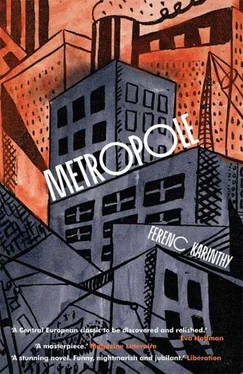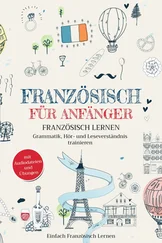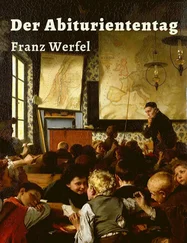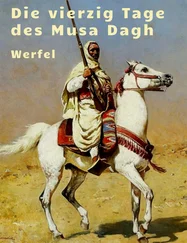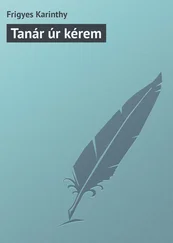The room was tiny but the fittings were modern and comfortable, complete with a settee, a cupboard, a writing desk, a standard lamp and a bedside reading light. In the tiny en suite there was a shower, a basin with hot and cold running water, a toilet bowl, as well as mirrors and towels. Both rooms were pleasantly warm though there was no sign of a heater: it must have been hidden in the wall. The windows were provided with curtains and canvas blinds and through them, opposite, he saw a tall, wide building, the same height as the hotel, dotted with many lit and darkened windows of its own. There was a single picture on his own wall, an oil painting, glazed, showing a gently undulating snowbound landscape with two pine trees and some scampering fawns in the distance. There was also a framed text beside the door, an inventory perhaps or the house rules, its orthography resembling that of the one downstairs. He didn’t recognise the alphabet, knowing only that it wasn’t like anything he had noted in passing, not Latin, not Greek, not Cyrillic, not Arabic, not Hebrew, but not Japanese, Chinese or Armenian either: he had taken a quick survey course of all these languages back in his student days. What did stick out, however, was that one or two Arabic numerals appeared in the mass of unrecognisable writing. He took out the money he had been given in exchange for his cheque and found much the same, the writing incomprehensible but the figures under the landscapes and portraits much as usual: eighteen brand new tens, a few ones and twos, and some coins of greater or lesser value. But he felt too drowsy and dull now to continue his investigations and dirty too after his long journey. He took out his bathroom items and put away some of his few belongings. Fortunately he and his wife had been wary of exceeding the 20kg limit in the suitcase so they stuffed what they could into the zip-up canvas shoulder-bag, including underwear, pyjamas, slippers, the wash-bag, a spare pair of shoes, a jumper, two bottles of wine to give away as presents, that kind of thing… It was odd how he had failed to seek out his baggage on arrival, though the fact was there seemed to be no opportunity to do so in the rush, in the dreamlike confusion when the passengers were herded onto the bus. But he had a faint memory of looking for something in it, that the suitcase was on the bus with him in the luggage compartment.
He showered and shaved in front of the mirror, put on clean underwear, immediately washing out what he had just worn, hanging his pants and vest on the taps and the shower head. Having done so he tried out the phone. Since there did not appear to be a phonebook or anything like it in the room, he simply kept dialling until he got somebody on the other end of the line. There were in fact a number of voices at the ends of the various lines, male and female both, but whatever language he chose to ask a question in, however often he repeated that question in another language, practically shouting out the word information! he was answered in the same incomprehensible way, in a language without discernible inflections, a continual jabbering — ‘ bebebe ’ or ‘ pepepe ’ or ‘ checheche ’. However he adjusted his sharp ears to the most delicate distinctions, to the most subtle tonal variations, he heard only a kind of muttering or burbling. In the end he slammed the receiver down with a bitter laugh, frustrated that everything and everyone was proving so difficult. In any case, he was hungry and had no idea when he had last eaten. He got dressed, locked his room and set off in search of food.
There was an older woman in charge of the lift now, not the blonde girl, or maybe he himself had got into a different lift, though this was as packed as the last had been. Downstairs in the lobby the grey-haired desk-clerk had also been replaced, but the queue had not grown any shorter. Budai had no more luck with this desk-clerk than he had with the last; it was ridiculous that a hotel as big as this should employ incompetents who could not speak any of the major world languages, but the people behind him in the queue were growing loud and those at the back were shouting and gesturing at him for pushing in, insisting that he should get to the back of the long serpentine row, so, feeling confused again, he put his key down on the desk and moved on.
The crowd in the lobby was just as dense as before, pushing and shoving, and he had to thread his way carefully through to the revolving doors. Once again the fat, gold-braided, fur-coated doorman saluted him, but the street was no less crowded than the hall, its tide of humanity swirling, flooding and lurching this way and that. Everyone was in a hurry, panting, elbowing and fighting to get through; one elderly woman in a headscarf kicked him as hard as she could on the ankle and he received a good many more blows on his shoulder and ribs. The traffic in the roadway was equally packed, the cars nose to tail, now stopping, now starting, making absolutely no allowance for pedestrians, as if they were stuck in some eternal bottleneck, engines continually revving, horns furiously blaring: there was a wide variety of them, saloons and trucks, enormous public conveyances, trolleys and buses, and he was surprised to discover he did not recognise any of the makes he knew from home or from previous visits abroad. Clearly he must have emerged in the evening rush hour and whichever way he turned, now left, now right, the crowd was such that he could not escape but repeatedly found himself back at the hotel entrance. So he turned down a side street, but there too the crowd was dense, the pavement heaving with pedestrians, the roadway jammed with cars: any move he made entailed a real effort. Not that he wanted to go too far of course in case he should get lost and not find his way back to the hotel.
Neon signs were blinking high above him. Most of the shops were still open. They were selling all kinds of things with a very wide range of choice, as the window displays made clear — clothes, shoes, dinner sets, flowers, household equipment, carpets, furniture, bicycles, perfume, plastic items — these, at least, were what he noted. And there were no end of customers, or so it seemed, with long queues inside, some of them extending out into the street. The most crowded were the two groceries that Budai passed on his short journey, a journey he just about found strength to make since the pavement was becoming ever more crowded, the customers who could not get into the shops congregating in the doorways or forming close-packed columns: he had no idea how long it would take to get round to buying something. But the hunger pains were increasingly acute so he was delighted to find a restaurant a little further along, the tables with their tablecloths behind the big plate-glass window, the guests at their dinners, the waiters in their white coats.
Unfortunately there was a queue here too, quite a long one at that, because they only let in as many guests as were leaving so it was rather slow progress. He tried to size up the others in the queue without drawing attention to himself. Some were white, some coloured: right in front of him were two coal-black, wire-haired, young men, a little further off an oriental-looking, pale-yellow woman with her daughter, but there were some tall Germanic types, one tubby Mediterranean gleaming with perspiration in his camel-coloured coat, a few brown-skinned Malays, some Arab or Semitic people, and a young redheaded woman with freckles in a blue woollen jumper, carrying a tennis racquet: it was hard to tell what race or shade formed the majority here, at least in front of the restaurant.
After a good forty minutes of creeping along he too was finally allowed in and left his coat at the counter in exchange for a number. The tables were all occupied, and it took some time to find him a place near the back of the hall. He asked in English if he might sit down but it seemed nobody could understand him, people glancing blankly up at him from their plates before immediately returning to their food. It was obvious that everyone here was in a hurry but it was another quarter of an hour before the waiter appeared since he was clearly so busy he could not have got to him earlier. He cleared and set the table for Budai, gathering up the used dishes and putting a menu down in front of him, though Budai couldn’t make head or tail of the contents. He started to explain this to the old waiter but the man simply shrugged and gabbled something and was, in any case, called away by someone else. Budai tried to address the others at the table. He spoke to them in six or eight languages but without any success whatsoever; they gave no sign of comprehension and didn’t even pay him much attention. He was growing ever more irritated, his stomach tense with excitement, but there wasn’t even a slice of bread nearby. It was another twenty minutes before the waiter returned with a large and fulsome dish of garnished chicken for his fellow diners but there was no point in Budai indicating his hunger and asking for some of the same for the waiter was called away again and it was impossible to say whether he had made a note of the order at all. In the meantime other diners came and went. The waiter reappeared at the far end of the table with new dishes and clean cutlery and was paid by some but he took not the least notice of Budai and soon enough he was called away to another table. Nevertheless, Budai kept whistling and waving until at last he returned only to rattle on in an annoyed and melancholy manner, his voice heavy with passion, though Budai couldn’t tell whether he was simply asking him to be patient or expressing his exasperation and wanted nothing more to do with him. Budai could barely contain himself: he felt helpless not knowing whether it was worth waiting or whether he should do something else. When the waiter returned and once again failed to serve him he smacked his hands down on the table, kicked his chair and stalked off in indignation. He had, of course, to join another queue for his coat, since there was a lot of coming and going, but he barged past them in his fury. He left a small coin for the cloak-room attendant, the old man there possibly grateful, muttering something that might have been a thanks.
Читать дальше
